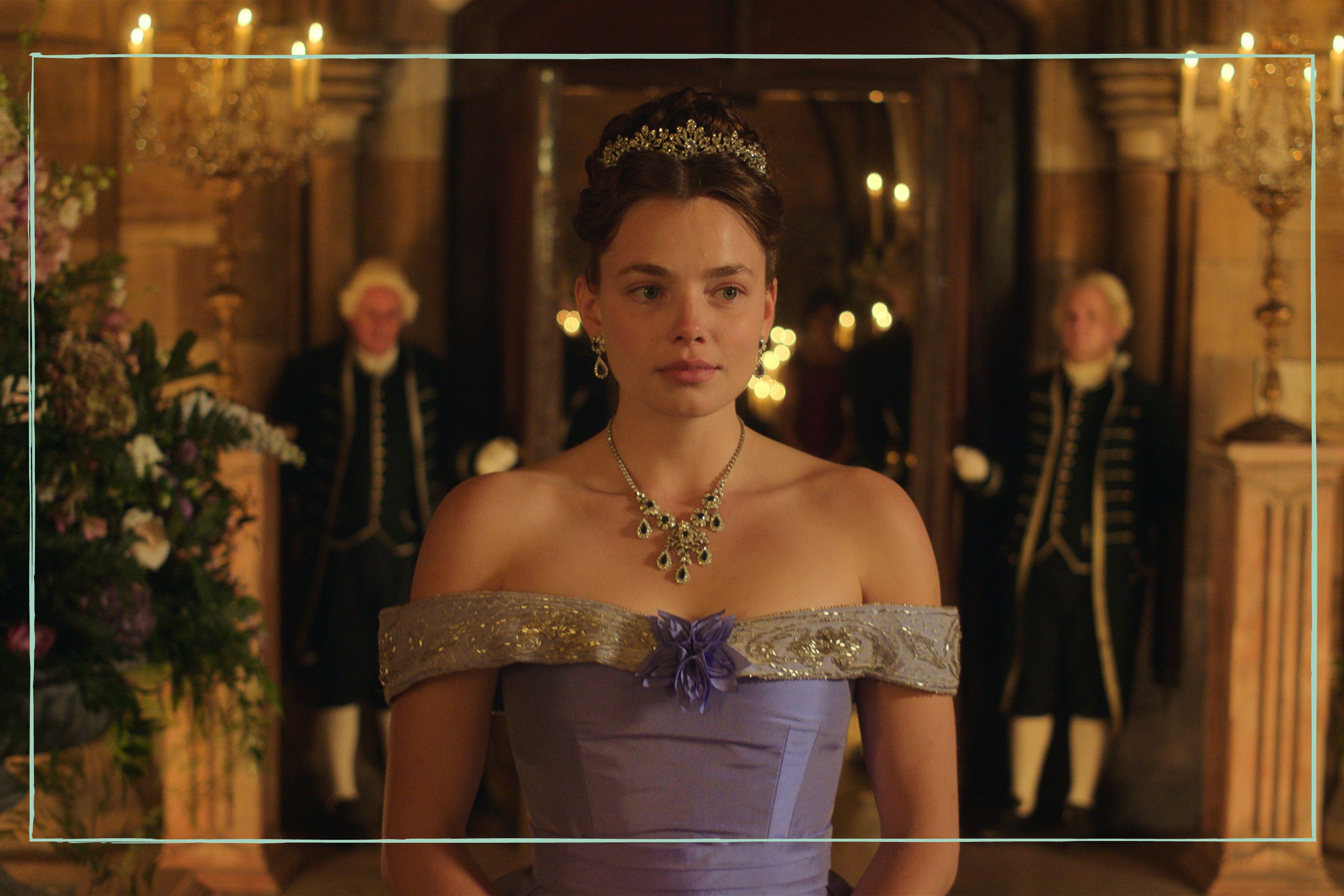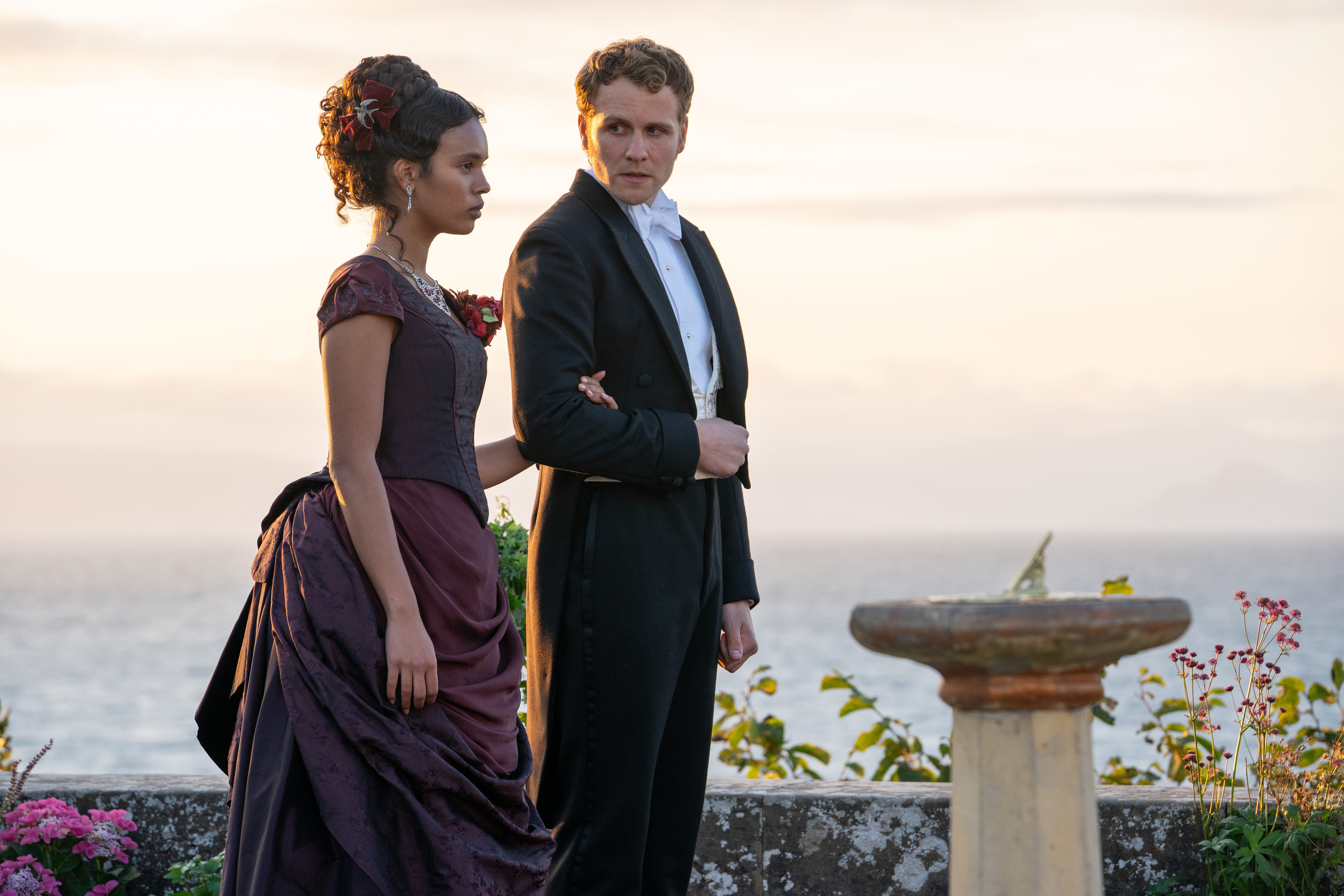
Gen Z meets Little Women in Apple TV's The Buccaneers - and I'm hooked on this loveable period drama.
A new adaptation of Edith Wharton's unfinished novel, The Buccaneers, has arrived on screens with a bang, and the young actors who play the show's five energetic heroines have captured the hearts of its viewers already.
The first three episodes dropped on November 8, with the next instalment due on November 15. And for parents looking for what to watch this month, The Buccaneers is the perfect show to give in to during those precious moments of peace after the kids have gone to bed.
Set between New York, London and Cornwall in the 1870s, the show follows a gaggle of new-money American girls who travel across the pond in search of English husbands. It's a tale that was not uncommon for the time period, when wealthy American women were sent to secure a higher status for their families by marrying into the British aristocracy - a mutually beneficial relationship thanks to the large dowries the ladies came with.
However, the matches aren't always happy and evident throughout The Buccaneers is the clash of American and English cultures. While the five North American heroines - Nan (Kristine Froseth), Conchita (Alisha Boe), Jinny (Imogen Waterhouse), Lizzy (Aubri Ibrag) and Mabel (Josie Totah) - enjoy drinking copious amounts of champagne and wild swimming in their undergarments, the British aristocracy make their horror at the girls' brashness only too well known.
The Buccaneers has been compared by many to Netflix smash-hit Bridgerton, and while the fusion of contemporary music, period costumes and titillating balls is present, I found it to be much more reminiscent of Little Women. Our protagonist, Nan, shares her recklessness and independence with the character of Jo March, and both are similarly disinterested in getting married.
Meanwhile, Theo, aka the Duke of Tintagel (played by Guy Remmers), is not unlike Little Women's Laurie. Raised as a gentleman, he prefers to spend his days painting and swimming in the sea than searching for a wife - until he meets Nan, of course.
The difference in The Buccaneers, however, is that unlike Jo March, who rejects Laurie's proposal, Nan eventually does decide to marry Theo. It's Nan's disinterest in conforming to high-society England's conventions that attracts the duke, and she is drawn to him not because of his title, but in spite of it.
While on the surface it's a clichéd romantic storyline, there are hints that everything is not as it seems by the end of the third episode (as those who've read the novel will know) and I detect a love triangle on the horizon.

But while The Buccaneers follows Nan and her fellow American heroines as they navigate the conventions of marriage and courting in England, the show is so much more than a love story. Overshadowing the girls' various romances is their unapologetic love for each other - so if you're watching because you're hoping for some of those steamy scenes that Bridgerton is so famed for, you'll find that they are few and far between.
The show doesn't shy away from more serious topics too, and as well as flirting their way around the aristocrats and bounding about the English countryside, the girls tackle sexual assault, question their sexuality, deal with family shame and secrets, and embark on a journey to discover where they want their place in the world to be.
With that said, something I would've liked to see more of in the first episodes is Conchita's journey as a mother. While it's clear that The Buccaneers makes a point of its central characters being more than wives and mothers, I feel it would have been fitting to touch on how motherhood affected the relationship between the young girls.
Briefly, Conchita mentions that she has been a "mess" since giving birth to her daughter, and this could have been a perfect opportunity to expand on the realities of motherhood and the struggles many women face in the postpartum period.

But perhaps that's too much to ask, because while The Buccaneers is an uplifting frolic in female friendship and protofeminism, it's also a bit ridiculous. The girls frequently use modern language, there's little attention to period detail and the characters' exploits are not unlike those of a typical girls' holiday abroad in the modern age.
But that doesn't matter, because The Buccaneers is escapist TV at its core - vibrant costumes, beautiful scenery and enviable sisterhood are just a handful of the reasons why it's worth your time.
So, next time your kids have made bedtime hard work and you need to unwind before you hit the hay yourself, leave your parenting brain behind and get lost in The Buccaneers' world of lavish balls, romance and girl power.
Want to know more about The Buccaneers? We've taken a look at where The Buccaneers was filmed and what The Buccaneers is based on too.







